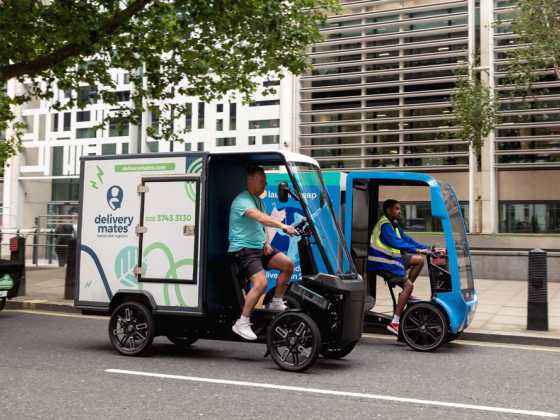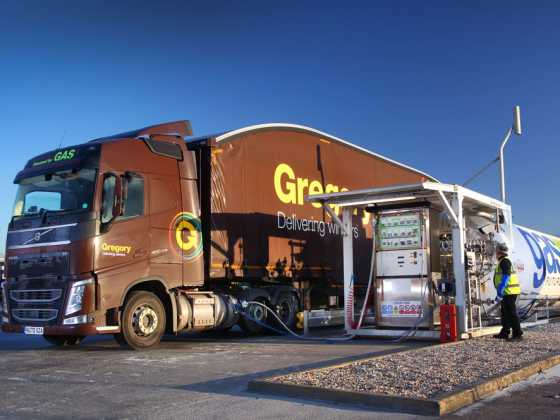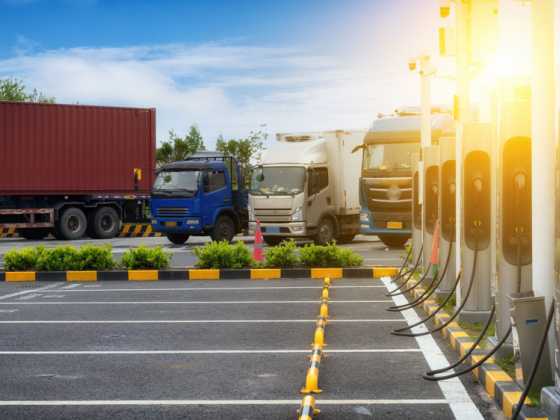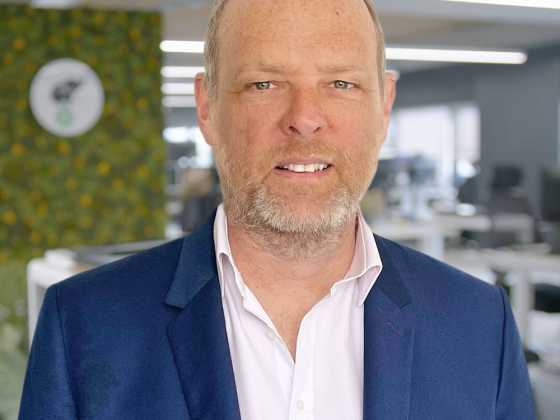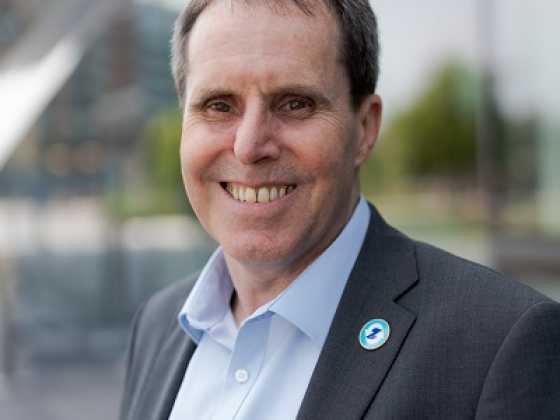Operating sustainably in the urban space
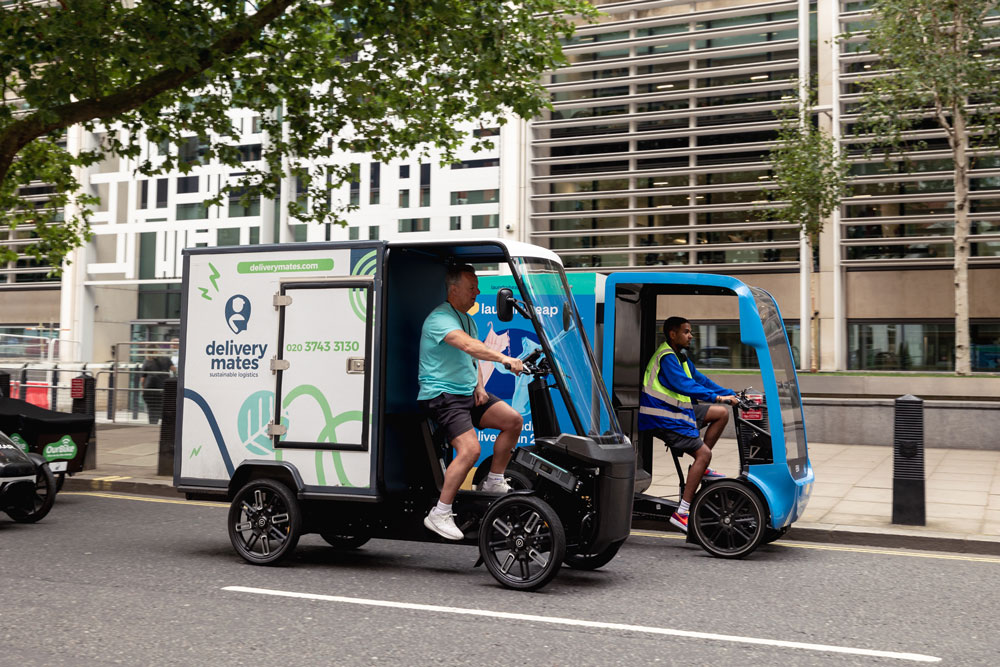
Kirsten Zoe Smith, co-chair of the newly formed Sustainable Urban Freight Association (SUFA), explains the organisation’s mission to accelerate the transition to cleaner and more efficient urban freight by utilising solutions such as electric vehicles, cargo bikes and multimodal freight solutions
Warwick was customarily warm and leafy when I arrived for the Fleet Electrification Forum last month. Hundreds of people from across the transportation and energy sectors turned out to discuss technology, sustainability, regulation, and face the surprisingly difficult challenge of networking at the same time as eating a Ceasar salad.
Towards the end of the day, I went on stage for a fireside chat with Tim Campbell to talk about a new trade association that I co-chair, called SUFA.
The Sustainable Urban Freight Association is a new trade body seeking to accelerate the transition to a cleaner, fairer and more efficient freight sector in the UK. We are doing this by bringing together operators, technologists, thinkers, software developers, and sustainability experts to solve the problems facing the sector head on.
The challenge of cleaner freight
Let’s clearly state what those problems are. In 2023, carbon emissions from trucks and vans were an eyewatering 32 per cent of UK transport emissions – contributing more to climate change than all gas power stations.
Secondly, urban freight accounted for almost a third of London’s air pollution, including NOx, which causes lung inflammation, and PM which is highly carcinogenic.
Lastly, with demand for delivery services skyrocketing since the pandemic, the growing number of vehicles on the roads threatens to grind our cities into gridlock, driving down productivity.
Freight operators are highly aware of these issues and have invested heavily in tackling them. Many companies have made incredible strides to eliminate tailpipe emissions through electrification, moved freight onto waterways, or switched to lighter, cleaner alternatives like cargo bikes. But much of the low hanging fruit has now been picked, and operators are facing the unenviable task of transitioning at scale while facing astronomical energy and capital costs, insufficient infrastructure and inconsistent regulation. SUFA is positioned to address these challenges with a new platform, and a new approach to sustainability.
Aligning targets with systems
I moved to London on a drizzly morning last March. Standing shoulder-to-armpit with my fellow commuters, I fiddled with my phone and struggled to hide the way I was grinning gormlessly into the depressing fog, unable to conceal my excitement to start a new life in the city, and a dream job. I was going to lead Net Zero strategy for the recycling company Recorra.
Over the next year I became engrossed with corporate sustainability, leading the assessment of our whole carbon footprint, navigating a new world of acronyms (SBTi, CSRD, CDP, GHGP, SECR, it goes on) and advocating to transition our fleet’s fuel supply from diesel to a biofuel alternative called HVO. Our logic is that this would get our emissions down in the short term, while we built out the infrastructure required to electrify our HGVs – which were twice the upfront cost, with less reliable range. But even as we passed audit and made the switch, I couldn’t shake the pangs of persistent doubt. The conversations I was having about individual targets, measurement and management were oddly divorced from the systems change and general technologies we depend on to eliminate emissions. We can use management frameworks all we like, but there would be no green grid without solar panels and no electrification without lithium batteries.
And more concerningly, there was this sense of decarbonisation as each company’s individual project. This attitude fails to acknowledge the way that our choices are heavily constrained by our surroundings. We operate within an industry, a market, an economy, and a policy landscape that shapes every choice we make. Rather than staring deeper into our own maps, we need to look up and realise that we’re all trying to climb the same mountain, and we only reach net zero if we all get to the top. The current approach has worked to get us off the ground, but if we’re going to cross the ravines of infrastructure transition, or scale the scree-slopes of investment costs, we will have to pull together.
So, when my head of marketing forwarded me an email from Impact on Urban Health asking whether we were interested in starting a new trade association targeted at sustainable urban freight, I jumped at the opportunity. It was what I’d been waiting for – a chance to work with the wider industry in a coordinated, organised way. Numerous emails, a bunch of forms and several meetings later, I was elected one of three co-chairs of SUFA, alongside Edoardo Del Bino of Orkestro, and Lee Pugh of Colchester eCargo.
A forum for urban freight operators
SUFA offers a new forum for sustainable urban freight operators, aiming first and foremost to deliver on our common mission. We will do this by being a voice for the sector – expressing the opinions, challenges, and agenda of our members to the authorities to shape policy so that it incentivises the electrification, decarbonisation and systems change we need.
The steering group has already advocated around several issues regarding road pricing, submitting a consultation response about the London congestion charge and pedestrianising Oxford Street. On top of that we are joining forces with other groups such as Electric London, and campaigners in favour of congestion charging in Oxford.
We will drive a collaborative, solutions-first approach by creating a home by operators, for operators. This is led by our three working groups that offer a space to address the most pressing challenges faced by each niche, including EVs, multi-modal systems, and cargo bikes. Whether you’re tackling air pollution with new brake pad materials, looking to better understand infrastructure, addressing capital costs, or looking for ways to build a business case for electric vans, this is a place to network with and learn from companies in your position across the country.
Our final mission is to shine a light on the challenges we all face. Freight is not widely discussed outside the industry and is too often pushed far down the list of transportation concerns, despite providing critical infrastructure that supports the entire UK economy. You cannot simply choose to not have freight. There’s also the fact that as policy incentivises people to get out of private cars and onto public transport, they will rely even more heavily on freight services, as they now lack the ability to move house, buy furniture, or do a large grocery shop on their own wheels.
We will communicate both the value, and the problems facing the industry by raising its profile in the media, and amongst the public.
We are now looking for collaborative, innovative and ambitious members to join our mission. As a new organisation, we can be more agile, inventive and attentive than other alternatives. The more members we have, the more weight we carry when we talk to government and the media, and the wider the expertise we can draw from. This is an opportunity to work on the sustainable transition at the scale, and speed that we need to succeed.

